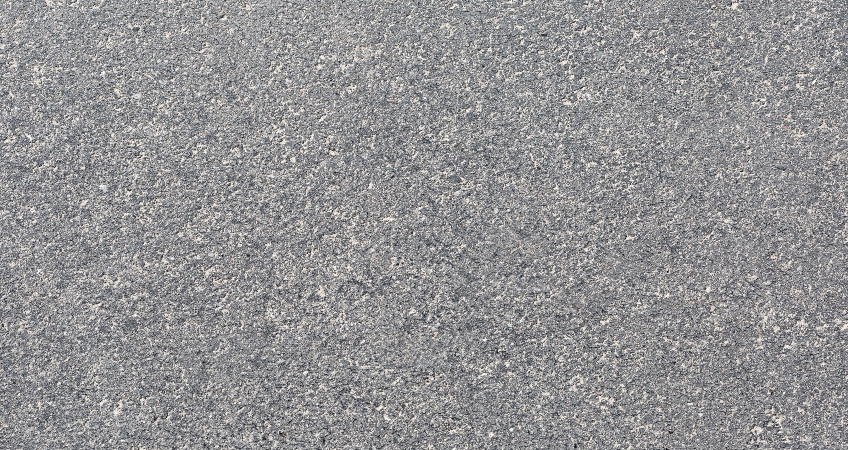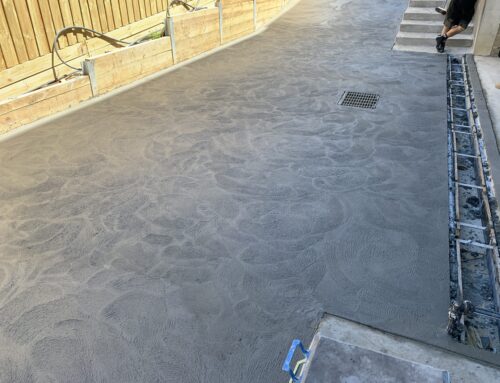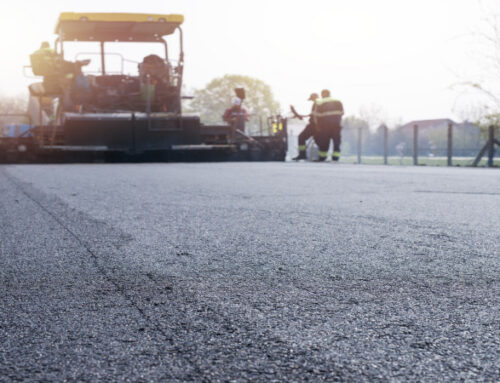Selecting the correct concrete driveway type is crucial for functional and aesthetic reasons. A driveway is an essential property component, serving as the entry point and often the first impression visitors have. A well-chosen driveway enhances curb appeal and can increase the property’s overall value. Moreover, the driveway must withstand heavy loads, weather conditions, and daily wear and tear. By carefully considering the various options available, homeowners can ensure they make a choice that aligns with their specific needs and preferences. When choosing a concrete driveway, several factors need to be taken into account. Each type of concrete driveway has its characteristics and benefits, and gaining a comprehensive understanding of these factors will empower homeowners to make well-informed decisions that align perfectly with their individual needs.
Plain Concrete Driveways
Plain concrete driveways, also known as traditional or broom finish driveways, are the most basic and commonly used option. They consist of a smooth concrete surface created by pouring and levelling the concrete mixture. Plain driveways offer a clean and simple appearance, providing a blank canvas for other property elements.
Benefits of Plain Concrete Driveways
Durability: Plain concrete driveways are highly durable and withstand heavy loads and traffic. They can resist vehicle wear and tear, making them ideal for long-term use.
Low Maintenance: Concrete driveways require minimal maintenance compared to other materials. They resist stains, oil spills, and other typical driveway issues. Regular cleaning and occasional sealing can keep them in good condition for years.
Cost-Effective: Plain concrete driveways are cost-effective for installation and long-term maintenance. They have a relatively lower upfront cost than alternatives like interlocking pavers or stamped concrete. Additionally, their durability reduces the need for frequent repairs and replacements.
Eco-Friendly: Concrete is an environmentally friendly material. It is made from natural resources like limestone, and its production process consumes less energy than other materials. Additionally, concrete is recyclable, so if a concrete driveway needs to be replaced, the old concrete can be crushed and reused.
Factors to consider when choosing a plain concrete driveway
Maintenance level: Homeowners should consider their willingness and ability to maintain the driveway. Plain concrete driveways require minimal upkeep, making them a low-maintenance choice.
Aesthetic preferences: Individuals should assess whether the plain appearance aligns with their desired aesthetic goals. Those seeking a more visually appealing or decorative option may need to explore alternative driveway types.
Stamped Concrete Driveways
Stamped concrete driveways provide the appearance of more expensive materials, such as stone, brick, or slate, at a fraction of the cost. This type of driveway involves pressing patterns and textures onto freshly poured concrete, creating a visually appealing surface. Stamped driveways offer versatility and can be customised to match various architectural styles and personal preferences.
Advantages of stamped concrete driveways:
Extensive design options: Stamped concrete driveways offer a wide range of design options and patterns, providing homeowners with ample choices to suit their preferences.
Variety of textures: Homeowners can select from various surfaces such as cobblestone, flagstone, or wood grain, allowing them to achieve the desired look and feel for their driveway.
Customisation: Stamped concrete driveways offer high levels of customisation. Homeowners can choose colours that harmonise with their property’s overall aesthetic, resulting in a unique and personalised driveway design.
Factors to consider when selecting a stamped concrete driveway
Design flexibility: Homeowners should assess the design flexibility stamped concrete driveways offer. Consider the variety of patterns, textures, and colour options available to ensure the driveway can be customised to suit individual preferences.
Maintenance requirements: Understand the maintenance needs of a stamped concrete driveway. It may require periodic sealing or resealing to protect the surface and maintain its appearance. Evaluate the level of necessary maintenance and ensure it aligns with your willingness to invest time and effort.
Contractor expertise: Stamped concrete driveways require professional installation to ensure proper technique and quality results. When choosing a contractor, consider their experience and expertise in working with stamped concrete.
Exposed Aggregate Concrete Driveways
Exposed aggregate concrete driveways provide a unique and natural aesthetic. These driveways offer a distinct and visually pleasing appearance by revealing decorative aggregates like stones or pebbles embedded within the concrete surface. The exposed aggregates create texture and enhance the overall character of the property, resulting in a driveway with depth and visual appeal.
Advantages of exposed aggregate driveways:
Durability: Exposed aggregate driveways are known for their high durability. They can withstand heavy loads and harsh weather conditions without significant wear or damage.
Slip resistance: The textured surface of exposed aggregate driveways offers excellent slip resistance. This makes them a safer option, particularly in regions where rain or snow is expected, reducing the risk of accidents.
Low maintenance: Exposed aggregate driveways require minimal maintenance. Routine cleaning and occasional resealing are typically sufficient to keep them in good condition, making them a convenient choice for homeowners.
Considerations for choosing an exposed aggregate concrete driveway
Maintenance requirements: Homeowners should assess the maintenance needs of an exposed aggregate concrete driveway. Understanding the recommended cleaning and sealing routines can help ensure its long-term durability and appearance.
Colour options: Explore the available colour choices for exposed aggregate driveways. Different combinations of aggregates and pigments can create various aesthetic effects. Consider how the colours will complement the overall look of the property.
Type of aggregates used: The type and size of aggregates used in the concrete mix will impact the driveway’s final appearance. Discuss with a professional contractor to select aggregates that align with your desired aesthetic and achieve the desired texture and visual appeal.
Coloured Concrete Driveways
Coloured concrete driveways allow homeowners to personalise the look of their driveway by incorporating pigments or dyes into the concrete mixture. This customisation option opens up a wide array of colours and shades to choose from, resulting in a visually stunning and distinctive driveway that perfectly complements the style of the property. The ability to add colour to the concrete gives homeowners the freedom to create a truly unique and eye-catching driveway.
Benefits of choosing coloured concrete:
Enhanced property design: Colored concrete driveways can elevate the overall design of a property. By selecting the right colour, homeowners can create a cohesive, harmonious look that complements other architectural elements and landscaping features.
Improved visibility for safety: Certain colours, such as lighter shades or contrasting tones, can enhance visibility on the driveway. This can be particularly beneficial during nighttime or adverse weather conditions, helping to ensure safety for both pedestrians and drivers.
Customisable options: With various colouring techniques available, homeowners have the flexibility to achieve their desired look and feel for the driveway. Whether it’s a subtle hue or a bold statement colour, the range of colouring options allows for personalised customisation.
Factors to consider when deciding on a coloured concrete driveway
Colour selection: Carefully choose the colour for the concrete driveway, considering how it complements the overall aesthetic and design of the property.
UV resistance: Selecting UV-resistant pigments or dyes is crucial for coloured concrete driveways. Over time, the sun’s UV rays can lead to the gradual fading and discoloration of various surfaces. Choosing UV-resistant colourants helps ensure the longevity of the colour and prevents premature fading.
Long-term colour retention: It is essential to prioritise high-quality pigments or dyes that are specifically formulated for outdoor use. The design of these products ensures their resilience against the elements, enabling them to preserve their vivid colours for an extended duration, ensuring long-term colour retention and reducing the need for frequent touch-ups or reapplication.
Paver or Interlocking Concrete Driveways
Paver or interlocking concrete driveways consist of individual units or pavers that fit together to create a stable and visually appealing surface. These driveways offer excellent flexibility, allowing for easy repairs or modifications. Pavers come in various shapes, sizes, colours, and patterns, enabling homeowners to create unique designs.
Advantages of paver or interlocking concrete driveways:
Design possibilities: Pavers offer homeowners a vast array of design possibilities. They can be arranged in various patterns, including herringbone, basket weave, or circular designs, allowing for a customised and unique look.
Versatility: The versatility of pavers makes them suitable for a wide range of architectural styles. They can be easily incorporated into different landscape designs, providing flexibility in creating a cohesive and aesthetically pleasing driveway.
Colour and texture options: Pavers come in different colours and textures, enabling homeowners to choose options that complement their property’s overall design. This variety allows for personalised customisation, resulting in a visually appealing and tailored driveway.
Considerations for selecting a paver or interlocking concrete driveway
Maintenance requirements: Evaluate the maintenance needs of a paver or interlocking concrete driveway. Understand that occasional maintenance, such as releveling or replacing damaged pavers, may be necessary to ensure their longevity and optimal performance.
Installation complexity: Professional installation is essential for paver driveways. Consider the complexity of the installation process and ensure that experienced and skilled professionals handle the project to ensure proper interlocking and long-term durability.
Quality of the pavers: Assess the quality of the pavers being used for the driveway. Opt for high-quality pavers that are designed to withstand heavy loads and weather conditions and maintain their appearance over time.

Photo Credit: Freepik
How to Choose the Right Concrete Driveway
Assessing your specific needs and requirements
Usage: Determine the primary purpose of your driveway. Will it primarily be used for vehicle parking, foot traffic, or both? Understanding the intended usage will help you select a driveway that meets your needs.
Climate: Take into account the climate in your area. If you live in an area with harsh winters, you’ll want a driveway that can withstand freezing temperatures and the use of de-icing chemicals.
Aesthetic preferences: Consider the overall look and style you desire for your driveway. Are you looking for a simple and traditional appearance or something more decorative and visually appealing?
Considering budgetary constraints
Concrete driveways come in various price ranges, so it’s crucial to consider your budgetary constraints before deciding. While some options may be more expensive initially, they may offer long-term cost savings due to their durability and low maintenance requirements. Evaluate your budget and weigh it against different driveway options’ potential benefits and longevity.
Seeking professional advice and recommendations
Seeking professional advice and recommendations is highly recommended when choosing a concrete driveway. Consulting with experienced contractors or concrete specialists can provide valuable insights into the suitability of different options for your needs and requirements. They can assess factors such as soil conditions, drainage considerations, and local building codes, helping you make an informed decision.
Conclusion
In this blog post, we have delved into concrete driveways and explored several common types: traditional concrete driveways, stamped concrete driveways, exposed aggregate concrete driveways, pavers or interlocking concrete driveways, and coloured concrete driveways. Each option presents unique features and benefits, allowing you to find the perfect match for your aesthetic preferences and functional requirements. By carefully weighing the various options against your specific criteria, consulting professionals when needed, and factoring in durability, maintenance, and budget, you can make an educated decision that offers the best value for your investment. As a result, you will have a concrete driveway that not only fulfills your practical requirements but also enhances the aesthetic charm of your property. Enjoy the benefits of a functional and visually pleasing concrete driveway for years.




